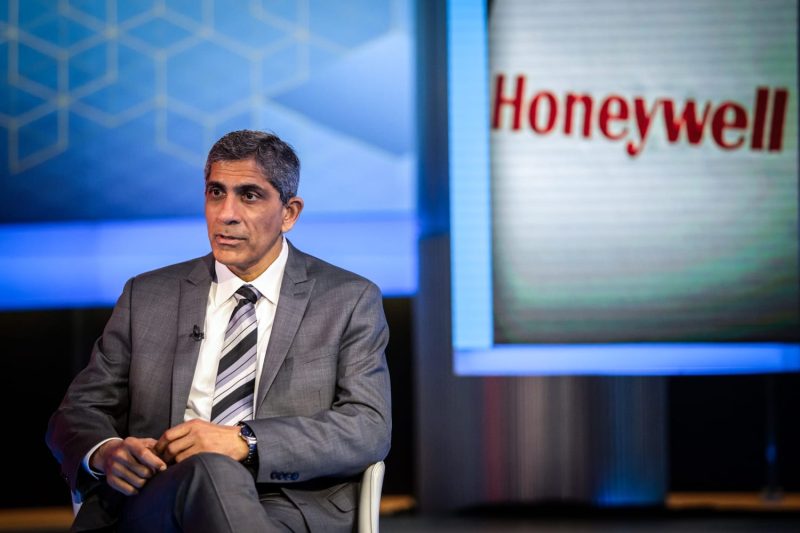As CEO of one of the world’s largest industrial conglomerates, Honeywell’s Vimal Kapur doesn’t think about AI like most individuals.
It’s not about the threatened office worker. “There is always a trend which makes your skills obsolete, every five years,” Kapur said at the recent CNBC Evolve: AI Opportunity Summit in New York City. “The churn in white collar is a continuous evolution.”
And he said it’s not about the cool features that can be offered to the consumer, who “gets excited by the writing of a resume or restaurant recommendation.”
The biggest problems AI can solve at Honeywell start with a generational labor shortage that it and client companies are facing. From pilots to technicians, declining birth rates in the industrialized world have led to less people available to do jobs that were popular 25 years ago. “Everyone has that problem in industrials,” he said.
The AI opportunity for Honeywell is creating a new labor pool that can learn and work alongside AI and accumulate and deploy institutional knowledge much faster. He said the 15 years of experience traditionally required for a human to handle a complex role can be accomplished at the same level by someone with five years of experience working with two AI co-pilots.
Labor isn’t the only issue where AI is being deployed. Kapur pointed to Honeywell’s planned rollout of connectivity within jet engines in the next few months that will allow the company to proactively monitor engine performance for maintenance issues before the engines return to the shop. The same goes for smoke detectors, another Honeywell lineup staple, which will be identified for servicing or replacement much earlier than before.
But it’s the labor issue which remains top of mind for the Honeywell CEO, and he added that it leads him to think of AI as a revenue-generating opportunity rather than a productivity fix. “The shortage of skills is the heart of the issue for us,” Kapur said. “It’s a constraint to grow revenue. The biggest revenue constraint is lack of skilled labor.“
Most companies are just beginning the search for the payoff from AI investments at levels far removed from the underlying large language models of OpenAI and chipmaking of Nvidia.
Gecko Robotics CEO Jake Loosararian, whose company works across energy, manufacturing, and defense to optimize maintenance efforts — its AI-powered inspection robots are analyzing equipment as large as aircraft carriers to identify structural flaws — says the raw data that is directly collected from the source without being filtered by intermediaries will be the key to many companies’ AI success.
“The future belongs to companies with ‘first-order’ data sets,” he told CNBC “Closing Bell Overtime” anchor Jon Fortt at the Evolve: AI Opportunity event.
The importance of moving beyond the current focus on the large language models was emphasized by several executives, including one working at the forefront of LLMs, Clément Delangue, co-founder and CEO of Hugging Face, one of the most highly valued AI startups in the world, with backing from Amazon, Nvidia, and Google. He voiced a similar sentiment to Loosararian at the CNBC event.
“Data and data sets are the next frontier for AI,” Delangue said. He noted that on Hugging Face’s platform, which uses an open-source approach to develop AI models, there are over 200,000 public data sets that have been shared, and the growth rate of data sets being added to the platform is faster than the growth rate of new large language models.
“The world is going to evolve to where it’s every single company, every single industry, even every single use case having their own specific customized models,” Delangue said. “Ultimately, every company, the same way they have their own code repository and build their own software products, they will build their own models … and ultimately that’s what will help them differentiate themselves.”
If companies gain the most benefit from AI customized to their use cases, that comes alongside a view gaining momentum in discussions of AI regulation that is shifting the focus away from the large language models and towards industry-specific monitoring. And as those use cases proliferate, the C-suite needs to make sure they are being communicated to the board.
“Board members really do need to understand what the use cases might be for their company so they can get the report from the people most knowledgeable on the risks their companies may be facing,” said Katherine Forrest, a former federal judge and partner at the law firm of Paul, Weiss, Rifkind, Wharton & Garrison who is an AI legal expert said at the CNBC AI summit.
She said the time is now to ask, “What are risks? Do we have the right people managing those risks? Have we had any incidents? They should know about any real actualization of those risks.“
For all the debate about how quickly AI opportunities will materialize, Honeywell’s Kapur is bullish on the adoption curve steepening quickly. “Awareness is high, adoption is low, but there will be an inflection point,” he said. “I do believe 2025-2026 will be a big year for adoption of AI in the context of industrials.”

